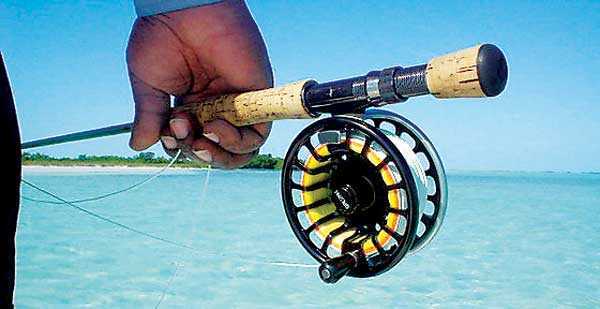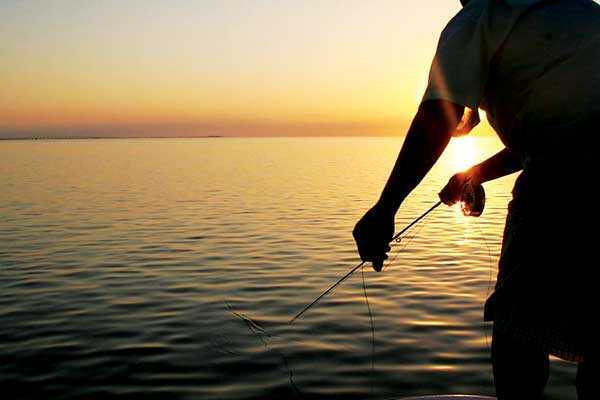By Richard Griggs:
I hear it on regular basis… “the guide said I needed to work on my casting.” Also, comments like, “I just couldn’t cast far enough…quick enough…accurate enough…and it was windy.” These are typical comments from someone who has made an expensive trek to our Carolina coast, Florida, the Bahamas, or some other exotic location for bonefish, snook, or tarpon. But I also hear similar comments from folks that have been to our North Carolina coast looking for redfish and false albacore, and sometimes from guys tossing flies to smallmouth bass on our local rivers.
Typical casting requirements on a stream or pond can be pretty easy. Distance is not much of a factor. Often you can wade closer or maneuver the boat. Stream fish typically hold in lies and you can repeatedly work your fly to them. It’s just the opposite in saltwater when fish are moving, chasing and busting bait, or are easily spooked in shallow, clear water of a flat. In those situations, a rapid, accurate delivery of a fly out to 50, 60, 70 feet or more can make the difference. Combine that with the need for good line management skills and folks often find their casting skills, which seemed to be perfectly fine on the home waters, are just not up to the challenges. A 60 foot cast in the comfort and stability of your backyard often translates to a cast of only 25 or 30 feet on a rocking boat, in the wind, with fish on the move… if you are lucky.
The solution to getting more bang for your buck is relatively simple and inexpensive: Fly casting lessons and an understanding and practice of good technique. The lessons from a qualified, patient instructor (likely not a friend or spouse) will help you achieve the fundamentals and habits of good casting. Then you can practice and fine-tune the correct technique with your coach. The main ingredient to success is the technique, not the tackle. Start well in advance of your trip and ideally practice with tackle like you’ll be using. Practicing with a 5-weight trout rod won’t help much if you’ll be casting a 10 or 12 weight outfit.
When you have good fundamentals of roll casting, false casting and loop size you can begin working on water hauls, single and double haul casting, and shooting the line for distance, as well as techniques like roll-cast pickups and speed casts. Along with that comes casting to moving fish i.e. leading the fish, and delivering the fly on the backcast. As these skills are honed, also work on good habits of line management.
There are sure to be number of folks throughout the Carolinas that can be good instructors. Check with area fly shops and clubs, ask questions and pay them a visit. When you find an instructor that suits you, make the commitment to begin training. Not only will you be much better prepared for a destination trip and its fly casting challenges; but you will find your “short game” on you local trout stream will also improve significantly.
Richard Griggs is the owner of Carolina Mountain Sports, in business in downtown Statesville since 1998. Contact him at 704 871-1444 or carolinamountainsports.com

